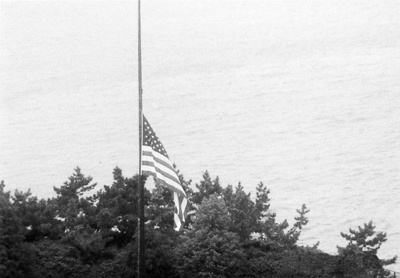All Nonfiction
- Bullying
- Books
- Academic
- Author Interviews
- Celebrity interviews
- College Articles
- College Essays
- Educator of the Year
- Heroes
- Interviews
- Memoir
- Personal Experience
- Sports
- Travel & Culture
All Opinions
- Bullying
- Current Events / Politics
- Discrimination
- Drugs / Alcohol / Smoking
- Entertainment / Celebrities
- Environment
- Love / Relationships
- Movies / Music / TV
- Pop Culture / Trends
- School / College
- Social Issues / Civics
- Spirituality / Religion
- Sports / Hobbies
All Hot Topics
- Bullying
- Community Service
- Environment
- Health
- Letters to the Editor
- Pride & Prejudice
- What Matters
- Back
Summer Guide
- Program Links
- Program Reviews
- Back
College Guide
- College Links
- College Reviews
- College Essays
- College Articles
- Back
The American Crisis: Number 1
An extremely influential piece of writing from the Colonial Period is Thomas Paine’s “The American Crisis: Number 1.” In this piece, Paine is focusing on persuading the American people to rebel against the British and win their freedom. Paine has a very unique writing style. Paine uses certain vocabulary, precise figurative language, and numerous rhetorical strategies to win the support of the American people.
Thomas Paine’s “The American Crisis: Number 1” uses a varied vocabulary. Paine is very formal in his writing. Paine includes sentences like, “I turn with the warm ardor of a friend” and “a man can distinguish himself between temper and principle” which shows his formality (Paine 108-110). The formal vocabulary shows that Paine is serious and wants to be taken seriously. Paine also uses very simple vocabulary. Even though sentences are long, simple vocabulary like “These are the times that try men’s souls” (Paine 108) make the piece easy to read and understand. There are very few high level words so that people of any intellectual level are capable of reading “The American Crisis: Number 1”. Paine’s writing is formal and simple; it is also very long. Paine uses a sentence containing twelve punctuation marks and eighty words. This long writing style shows that Paine uses many compound complex sentences to express his thoughts. Paine’s writing uses formal, simple, and long writing to persuade Americans to rebel against the British.
Thomas Paine also uses many types of figurative language in “The American Crisis: Number 1”. Similes are present in Paine’s writing. Paine states that his reasoning is “straight and clear as a ray of light” (Paine 110). This simile compares Paine’s reasoning to a ray of light to help the reader better understand. Paine also uses metaphors in his writing. Paine says that liberty is a flame that “may sometimes cease to shine,” but the coal of liberty “can never expire” (Paine 109). This metaphor compares liberty to a flame that can cease and a coal that lasts forever. Symbolism is also used throughout “The American Crisis: Number 1”. Paine says that a good parent should say, “If there must be trouble, let it be in my day, that my child may have peace;’” (Paine 109) instead of pushing their hardships onto their children. This symbolizes the bad parenting that the British showed for America. Paine tries to win support of the American people through the use of similes, metaphors, and symbolism.
Thomas Paine uses multiple rhetorical strategies to try to sway the American people in favor of rebelling against the British. One of the rhetorical strategies used is pathos, which is the appeal to emotion. Paine says that “wars, without ceasing, will break out till” American is freed from British rule (Paine 109). War is very emotional and conjures fear, sadness, and anger from people. Paine also uses logos, which is the appeal to logic. Paine tells the people not to see “that thousands are gone,” (Paine 110) but to do what is right and continue to fight. Numbers appeal to logic, and this quote appeals to both logic and emotion causing fear and the need for revenge. The final type of rhetorical strategy used is ethos, which is credibility. Paine uses God as his source, saying that such “unlimited a power can only belong to God” when he speaks of Britain binding America (Paine 108). Paine uses God as his source and says only He has that power. In “The American Crisis: Number 1”, pathos, logos, and ethos appeal to the people of America and lure them into supporting Thomas Paine.
With the use of simple, formal, and long vocabulary; precise, creative, and colorful figurative language; and strong, cunning, and intense rhetorical strategies, Thomas Paine persuaded the citizens of America to rebel against the British. The Revolutionists defeated the British in the Revolutionary War to gain independence from Great Britain and continues to prosper today. Without the unique writing style of Thomas Paine, the United States would not be the country it is today.

Similar Articles
JOIN THE DISCUSSION
This article has 0 comments.

Course. Atlanta: Holt, Rhinehart, & Winston, 1997. 108-111. Print.